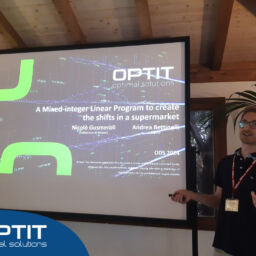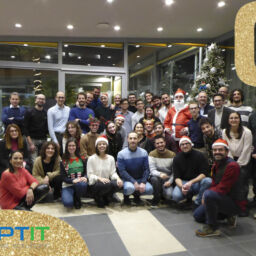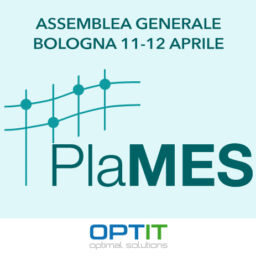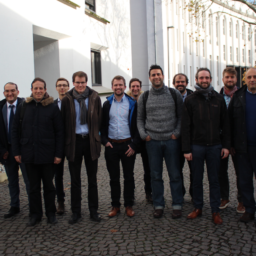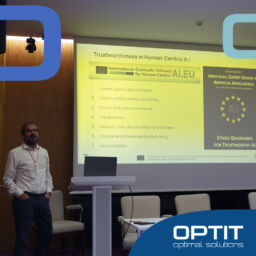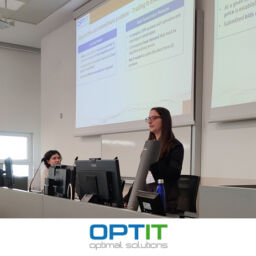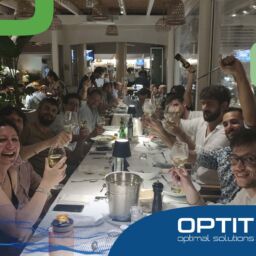Optit, in the person of Antonio Napoletano, participated in the 8th meeting of VeRoLog (EURO Working Group on Vehicle Routing and Logistics Optimization) in Hamburg, one of the most important and authoritative international conferences in the field of routing and logistics; VeRoLog is in fact the working group on vehicle routing and logistics optimization within EURO, the association of European operations research companies.
Within the Panel on the VRP (Vehicle Routing Problem), Antonio presented a study entitled: “Routing of vehicles at work: an implementation in the real world and case studies”.
In a highly scientific meeting, Optit made an important contribution in the analysis of the main problems encountered in the application of mathematical models to the real world; the paper presents the latest improvements to the Optit Logistics system, the decision support tool designed and developed by Optit for advanced transport planning, whose optimization core is based on Optit’s proprietary VRP algorithms, which can be verticalized on the individual customer needs (operational constraints, business logic, etc.).
Antonio illustrated a real case dealt with an Optit GDO customer; this “case” contains considerable complexities that cannot be modeled in a simple way and the combination of which, to the best of our knowledge, has not previously been dealt within the existing literature.
Compared to a “classic” case of large-scale distribution (delivery rounds from the warehouse – CeDi – to the various points of sale), the algorithm is also required to decide whether each order must be sent in “direct mode” from the CeDi to the delivery point or in alternative in “cross-docked mode” by appropriately selecting the so-called transit-point where the order is consolidated with others for the delivery of the last mile. All this in addition to the operational constraints – some very sophisticated – that must be managed for these problems business, such as:
- multiple time windows (collection and delivery), both hard and soft;
- partitionable orders (i.e. splitting of orders over several trips), useful for managing particularly large promotional orders;
- heterogeneous fleets, with vehicles suitable for multi-temperature transport;
- etc…
The overall approach to the solution is based on two phases:
- in a first phase a problem of “minimum cost” multi-commodity flow is solved on an ad-hoc flow network in order to define the optimal distribution strategy (or “which orders to deliver immediately” vs “which shuttled orders “) …
- while in a second phase the solution defined by the flow is manipulated to make it consistent with the original optimization problem and iteratively improved through the application of a specialized VRP algorithm.
This combined approach is extensively validated on real-world instances, and has been shown to deliver very good results compared to previously deployed solutions.
Travel optimization is a key aspect of logistics and supply chain management, as well as people transport activities, and is a very active research area in operations research that sees intense input from a large number of researchers who work in European universities, research centers and companies.
Optit has been working for over 15 years in the development and evolution of VRP algorithms, supporting numerous business problems, providing highly verticalized and specialized solutions to customers operating in the FMCG, Retail, Logistics and Transportation sectors.






